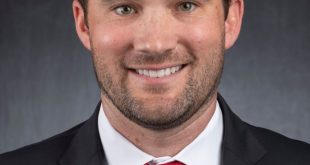If you have a child in a public school, you may want to look at a study that has set the education world abuzz this month. You may also want to ask your child’s principal or superintendent what he or she plans on doing with the information.
Harvard and Columbia researchers discovered that quality teachers impact their students not only immediately, but over a lifetime. Those with good teachers end up earning higher incomes, getting college degrees and avoiding teen pregnancy. (To read the report, go to obs.rc.fas.harvard.edu/chetty/value_added.html.)
Intuitively, the data makes sense. Most of us can point to a super teacher who impacted our lives. I still remember the expectations that Thelma Nelson and Rutha Cooper created in their classrooms.
But what is effective teaching?
Fortunately, numerous people and institutions are searching for the answers. The White House is pushing effective teaching. The Bill & Melinda Gates Foundation has a project devoted to quality instruction. And the George W. Bush Institute is spearheading a national effort to develop education leaders.
David Chard, dean of Southern Methodist University’s Simmons School of Education and Human Development, is part of that conversation. He wrote recently, “High-quality teachers must have two things: knowledge of content and effective instructional strategies.”
I called him last week to learn more about these essentials, and to see how schools, districts and states can develop them in more teachers.
Chard started by explaining that states highly regulate teacher preparation to ensure that classrooms have enough instructors. By setting minimum standards, states can be certain that they will have enough teachers.
At one level, that’s understandable. In a state like Texas, with nearly 5 million students, you need plenty of teachers.
But there’s also an awful risk in that strategy. It’s possible -even likely -that instructors end up leading discussions in subjects they don’t grasp. For example, they might have taken a college course in math but not really understand why we divide fractions in a particular way.
Such deficiencies are why SMU’s education school has created a course for prospective instructors with the university’s math department. That’s a move forward for future teachers and education schools. The latter rightly have been criticized for not ensuring that their graduates know the subjects they want to teach. (For teachers already in the classroom, part of their professional development should involve subject content.)
What about effective teaching strategies?
Chard says this is a tricky dance because a teacher must figure out the needs of 25 students or more. And teachers may not know enough about how young minds develop.
They might have taken a course in educational psychology, but not in cognitive and developmental psychology. So some teachers start the complex planning for their classes without knowing enough about how the minds of their students work.
In fairness to teachers, their craft has become considerably more demanding, even scientific. Expectations have changed for students and teachers alike, largely for economic reasons. Once, students could drop out and know they could get a decent factory job. No more. Factories either have disappeared or demand more sophisticated labor.
As a result, there is more pressure upon teachers. More than ever, students depend upon their knowing what to teach and how to reach developing minds. The instructors in front of them will greatly influence how much they earn, whether they attend college or if they end up teenage parents.
Americans are spending months upon months selecting the next president. Right behind that, we should be thinking more about who leads our classrooms.
 The Spectator The independent student newspaper of Valdosta State University
The Spectator The independent student newspaper of Valdosta State University





